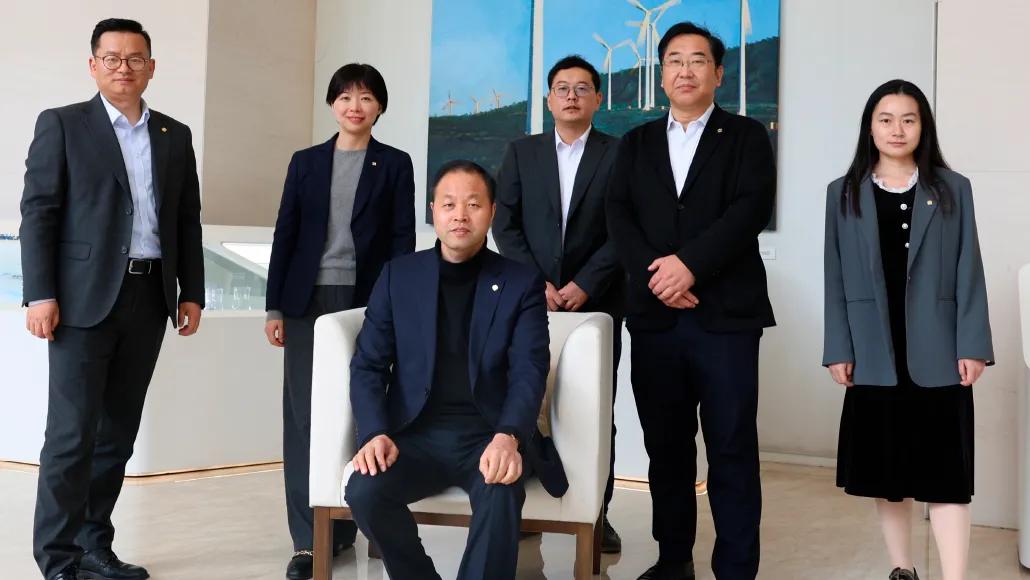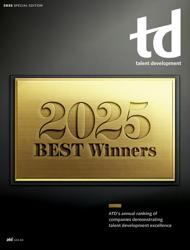TD Magazine Article
Member Benefit
Powering Talent for the Future
A multitude of colleges and academies within this corporate university contribute to meeting staff’s and the company’s needs.
Mon Jun 16 2025
GCL (Group) Holdings Company Limited: 2025 BEST Award Winner, #18
Suzhou, China

Policy shifts and environmental considerations are continually reshaping the energy industry. In that highly competitive market, China-based GCL Group specializes in clean energy installations, virtual power plants, and energy management. To help combat technological and cultural shifts affecting the business, GCL established a corporate university and harnessed technology to drive employee performance.
Academic ecosystem
"In a globalized business environment, addressing skills gaps is key to ensuring the organization's agility and competitive edge," says Young Zuo, senior training manager. "The university provides comprehensive training in technical skills, technology, management, and corporate culture, ensuring that employees can quickly adapt to new tools and work methods."
The university develops and delivers courseware on complex technical and engineering operations; digital skills, artificial intelligence, and data analytics; and managerial and leadership best practices. The talent development team analyzed the company's high-volume functional departments, key business segments, and future growth directions, including supply chain management, manufacturing, and risk control.
The team also examined cutting-edge areas making an impact on the business such as new energy, photovoltaic technology, and digital management. Finally, as GCL continues to expand into international markets, the TD function identified key competency needs in global business operations, cross-cultural communication, and international regulatory compliance.
"Department managers and team leaders regularly relay the skill challenges they encounter in actual business operations, ensuring our training programs closely match organizational needs," Zuo explains.
After pinpointing skills gaps and competency requirements in those areas, TD established several professional colleges and academies within the university. To nurture talent and enhance operational efficiency in critical areas, each academy or college offers multilevel training courses. During periodic reviews to identify skills gaps and development needs, managers can recommend employees for a specific academy, such as the New Energy Engineering Technology Academy or the Risk Control Audit College, based on the employee's personal career goals and the company's urgent talent needs.
In addition, staff may self-register and participate in assessments for specific professional certification programs offered by the university, such as the Project Management Professional certification or the AI Data Analytics certification, provided they meet the eligibility criteria.
The university often sources advanced professional skill courses from domestic and international training institutions or experts, customizing the content to better align with the energy industry and the organization's internal management procedures. Where there are gaps, the TD team's instructional designers and course developers organize collaborative workshops involving multiple business units, subject matter experts, and management teams.
"Real business cases from within the company are prioritized in course design, making the training more targeted and practical," Zuo notes.
The company encourages employees to contribute courses and content based on their expertise and business experience. The university supports staff in developing professional courseware by providing templates, toolkits, and training and facilitation resources. After the TD team reviews and approves employee-created courseware, the team tests it on a small scale and refines the content based on participant feedback.
GCL recognizes top contributors through awards and incentives, including teaching fees and career advancement credits, encouraging continuous participation in course co-development.
Digital empowerment
Technological innovation is central to GCL's growth strategy, using intelligent technologies to enhance efficiency and flexibility. Similarly, the TD function taps a digital learning platform to run the university and knowledge management repository.
AI and analytics fuel the platform, providing personal learning paths for every employee. For instance, AI pairs data about employees' job responsibilities, skills assessments, and course completions with learning criteria and predetermined career tracks to automate course registrations and recommend development resources. The platform can dynamically adjust learning paths based on performance evaluation data, ensuring learners continuously improve critical skills and follow a structured progression from beginner to intermediate to advanced.
"The intelligent platform allows for refined talent management and the creation of personalized learning and development paths that align with our strategic business needs and capabilities and ensure each employee receives the training and development opportunities best suited to their growth," says Zuo.
Additionally, it uses data analytics to adjust learning content in real time. For instance, if employees perform exceptionally well in specific skill assessments, they can skip foundational courses and advance directly to higher-level training. The system also communicates with the company's internal HR systems, enabling automatic adjustments to learning paths when employees receive a promotion or transfer to new roles.
Platform metrics reveal a 40 percent increase in the number of staff who participated in courses on their custom learning paths, indicating a high demand for personal learning experiences. More importantly, course completion increased an average of 20 percent, directly boosting further professional development and promotion opportunities for workers.
Zuo confirms that such access to "continuous learning opportunities helps employees constantly update their skills and knowledge, supporting their career growth and adaptation to rapidly changing job requirements."
The platform's knowledge management feature integrates continuous learning into individuals' daily workflows. Employees spread across various regions can find the same content and performance support assets when they encounter specific, work-related problems.
During the past year, the platform recorded employee access to the knowledge repository more than 50,000 times, with most inquiries resolved within five minutes. Another metric indicates the platform helped reduce work interruptions by 30 percent. Overall, data shows that integration with other systems boosted daily access to learning materials, with an average of 10 visits per employee per month.
"The integrated learning platform ensures that knowledge acquisition and application are almost seamless, greatly enhancing motivation and effectiveness in learning," states Zuo.
Employee satisfaction surveys suggest that staff believe the corporate university courses, personalized learning paths, and other content delivered via the digital platform significantly improve their work efficiency and job satisfaction.
In addition, Zuo asserts, by aligning educational outcomes with strategic business needs, TD at GCL "creates an environment that fosters both individual and organizational growth."

